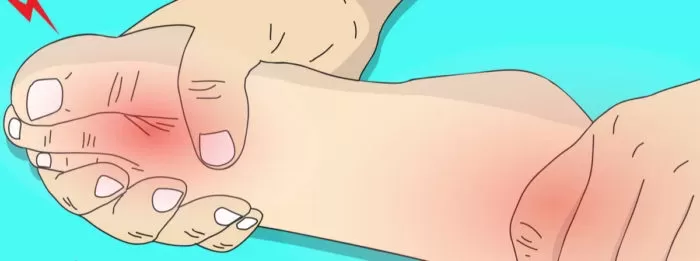
Diabetic Neuropathy: Can Dietary Supplements Help?
(from the Mayo Clinic)
A healthy diet is a critical factor in controlling blood sugar, which is key in managing diabetes and preventing or slowing the progression of diabetes complications such as diabetic neuropathy. Dietary supplements also may play a role.
Diabetic neuropathy is a type of nerve damage that can happen if you have diabetes. This condition can cause pain and tingling in the hands and feet, digestion problems, and sexual problems. Advanced neuropathy in the feet can lead to:
- Loss of feeling
- Ulcers that don’t heal
- A need to remove (amputate) your toe, foot or lower leg
Eating a healthy diet is an important part of managing your diabetes, and it may help prevent diabetic neuropathy and other complications. Keeping your blood sugar under control may help slow the progression of nerve damage.
Dietary supplements may help reduce diabetic neuropathy symptoms, but more research is needed. Talk with your doctor before taking a dietary supplement. Some may interfere with certain diabetes medications, and some can increase the risk of kidney problems.
Vitamin B-12 is present in some foods and helps with proper nerve function and red blood cell production. People who don’t get enough vitamin B-12 may have a higher risk of neuropathy and other nervous system (neurological) problems.
Certain drugs may lead to a B-12 deficiency, including:
- Metformin (Glumetza, Riomet, others), a drug used to treat type 2 diabetes
- Stomach acid-reducing proton pump inhibitors (Prevacid 24 HR, Prilosec OTC, others)
- Stomach acid-reducing histamine (H-2) blockers (Tagamet HB, Pepcid AC, others)
It’s unclear whether taking vitamin B-12 supplements can help treat diabetic neuropathy. Some small studies have shown a lessening of pain and other abnormal sensations. However, for people who don’t have a vitamin B-12 deficiency, taking B-12 supplements for diabetic neuropathy hasn’t been shown to help.
A vitamin B-12 supplement is generally considered safe when taken as directed. Natural sources of vitamin B-12 that you may include in your diet are fish, lean red meat and vitamin-fortified breakfast cereals.
Alpha-lipoic acid is an antioxidant found in many foods. Antioxidants are substances that the body can use to prevent or manage a tissue-damaging process (oxidative stress). Oxidative stress is a part of the diabetic neuropathy disease process. Alpha-lipoic acid also has been shown to lower blood sugar levels.
In a few small studies, people who had diabetic neuropathy experienced less pain, improved performance on nerve function tests, and improvements in other signs and symptoms. Larger studies are needed.
Alpha-lipoic acid supplements are generally considered safe when taken as recommended. However, if you take this supplement when you have a significant thiamin (vitamin B-1) deficiency, alpha-lipoic toxicity might occur. Don’t use alpha-lipoic acid if you’re a heavy alcohol user.
Natural sources of alpha-lipoic acid include spinach, broccoli and yeast.
Acetyl-L-carnitine is a chemical compound naturally produced in the kidneys and liver. Acetyl-L-carnitine helps to reduce oxidative stress. It’s believed to be involved in nerve cell function and regeneration.
In a few clinical trials, people who had diabetic neuropathy had reduced pain, improvements in other sensory problems and improvements in nerve function tests. Some of these studies also suggested that the treatment effect is greater when started early in the disease’s course. More studies are needed.
Acetyl-L-carnitine supplements are generally considered safe when taken as directed. Side effects may include nausea, vomiting or agitation.
Don’t use acetyl-L-carnitine if you use warfarin (Coumadin, Jantoven), a blood-thinning medication, because the combination increases warfarin’s effect and potentially the bleeding risk. For people who have hypothyroidism or a history of seizures, acetyl-L-carnitine may make these conditions worse.
A Healthy Diet is Essential
Although research into the relationship between dietary supplements and diabetic neuropathy is ongoing, eating a healthy diet is widely recognized as a key part of managing your blood sugar and diabetes complications such as diabetic neuropathy.
Aim for a healthy-eating plan that’s naturally rich in nutrients and low in fat and calories. Healthy meal plans focus on:
- Vegetables, fruits, legumes and whole grains
- Fat-free and low-fat dairy products
- Lean meats, fish, and poultry without the skin
Physical Activity Plays Important Role
Exercise is essential to managing your blood sugar. Check with your doctor before starting a new physical activity, especially if you’re taking medications that lower your blood sugar. People who have diabetes should aim for at least 150 minutes of moderate to vigorous activity each week. For example, aim to go on a brisk walk for about 30 minutes on most days of the week.
Drink water before, during and after activity to prevent dehydration. And be sure to wear comfortable, supportive shoes.



